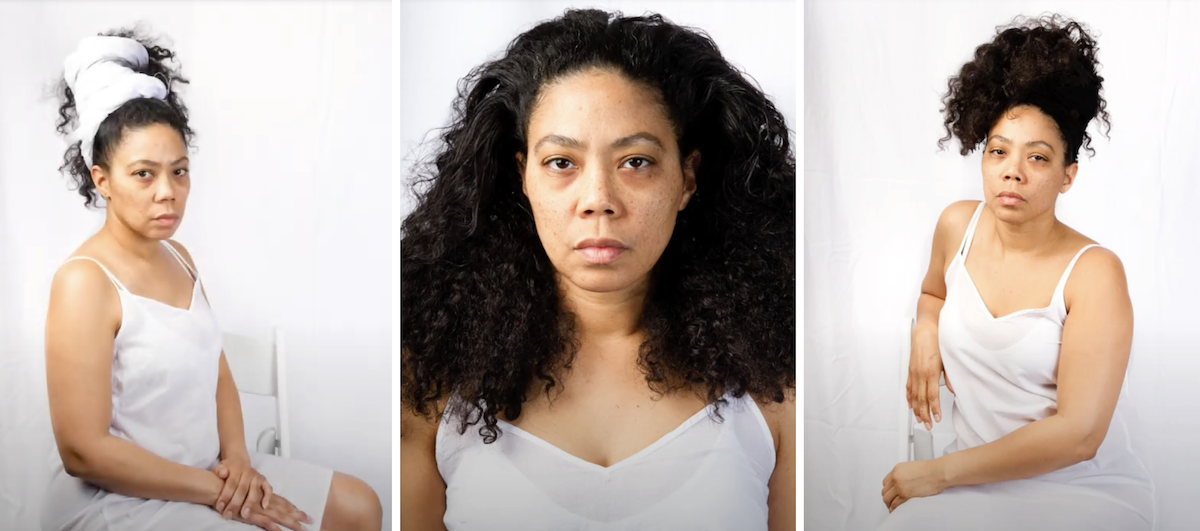This month’s Cameo features Undoing by Tiffany D. Jones, a photographer and community-based artist and Director of Programs and Equity Initiatives at Access Art in Baltimore.
Tiffany has long made Black identity central to her art practice.
10 years ago, as her thesis project at the Maryland Institute College of Arts, she created BLACK, 2012, a body of self-reflective work catalyzed by such contemporaneous events as the murder of Trayvon Martin. She went on to other projects such as unFaded (2016), part of a series curated by Rhea Beckett called “Black Space,” and I, Colored (2017), a project exploring the legacy of once-segregated public swimming pools in Baltimore.
Now, in 2021, she’s diving deeper and more personally into her experience as a Black woman in America. The results are as challenging as they are powerful.
As Director of Program and Equity Initiatives at a youth arts program, Tiffany is responsible for the professional development of a team of instructors working predominantly with youth of color and other systematically marginalized communities. She, her Executive Director, and their team are freshly examining all aspects of their programming through an equity lens: topics range from the language they use in the classroom to the artist examples they share to how to talk to young people about their identity, power, and place in the larger community.
“It’s a lot of anti-racism and liberation work. I involve myself, of course—you have to do your own internal work about your own biases—then look at the institutional piece. I found myself doing anti-racist work with four different groups this past year. I’ve been immersed in it.”
And that work led to Undoing.
“The piece is about what I have experienced growing up, what’s happening in my life, and me trying to make sense of it all. Of all I have learned and am still learning.”
Undoing includes three self-portraits by Tiffany. Above, the left and right panels show her seated and sideways. In the central panel, she is more up-close and front-facing. In each image, she appears haggard yet strong; beaten down but not defeated. Her hair is by turns contained and unbound. Open-eyed, in naked light, her outward gaze is steady—insistent.
The photos are accompanied by a poem she wrote and reads aloud that opens with these words:
A Tangled mess
Proud of the skin I’m in, with every curl pattern
A young girl is, was proud of her experiences, I was fortunate
Bused. Educated. Privileged?
I could not know then, what I know now
They taught me how to articulate
Code switch my hood would say
Never unruly, following the rules, checking the boxes, doing what I was taught, thought best was
Talk proper, not white
Proper, not a tangled mess
It goes on (watch the video here).
Powerful.
The challenge Tiffany’s art presents is about race, of course, and also about community and accountability, things germane to each of us. For another way to understand anti-racist work is as pro-humanity work: it is at heart about seeing one another as full people, in all our difference and similarity. It is about flagging the communal harm that comes from one group centering its own experience, and the community healing that results when we’re able to take in—honor, respect, and work to understand—others’ experiences and identities. It’s about the benefits that accrue from recognizing past inequity, and seeing one another in full.
Tiffany is asking this of us with Undoing: the piece demands us to see, acknowledge, and embrace her entirely.
And therein lies the powerful challenge of the piece, asserting itself like a question for the viewer to take up, like the word I imagine on Tiffany’s mind as she looks out at us, draped in white:
“Well?”

